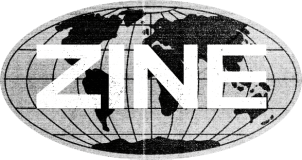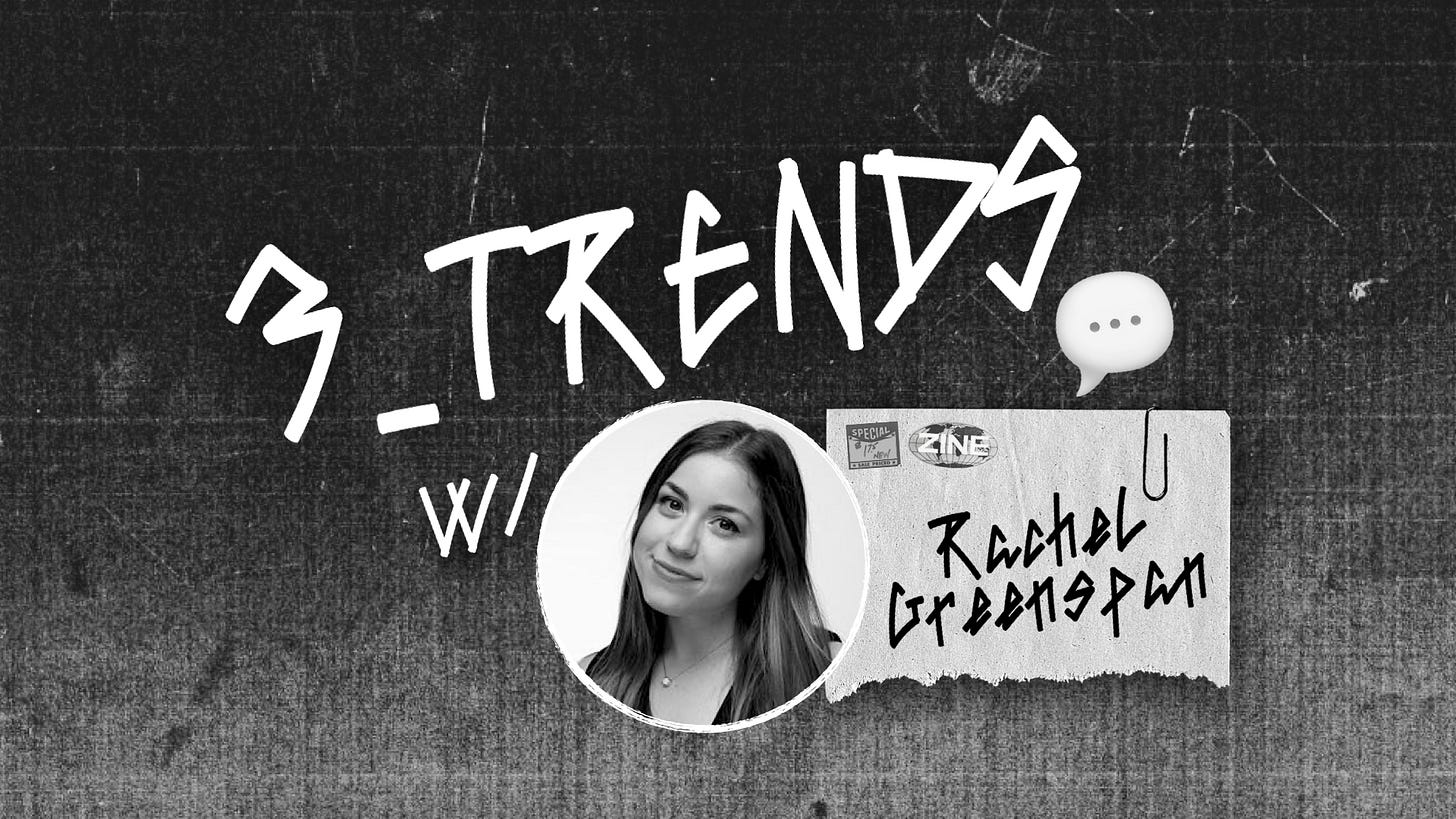3_TRENDS_Vol.13: Rachel Greenspan: Undecorated (Online) Homes, Career M&A + Rolodex Death
Vol.13
3_TRENDS is an interview series with the world's leading cultural researchers and thinkers, sharing their favorite overlooked trends.
Rachel E. Greenspan (RG) is an editor on Insider’s Digital Culture desk. She won an American Journalism Online Award from NYU's Arthur L. Carter Journalism Institute for her coverage of QAnon. Previously, she was a r…


